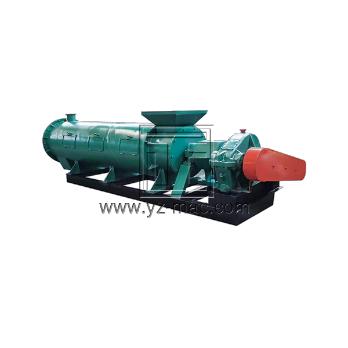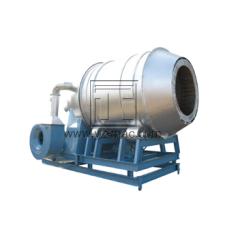Compost machine for sale
Compost machines are specialized equipment designed to process organic waste and facilitate the composting process. They come in various sizes and configurations to suit different needs and volumes of organic waste. When considering a compost machine for buy, here are some factors to consider:
Size and Capacity:
Determine the size and capacity of the compost machine based on your waste generation and composting requirements. Consider the volume of organic waste you need to process and the desired compost production output. Choose a machine that can handle the anticipated waste volume and produce enough compost to meet your needs.
Type of Composting:
Different compost machines are suitable for different types of composting methods. Consider the composting technique you intend to use, such as aerobic composting, vermicomposting, or anaerobic digestion. Ensure that the compost machine you choose is compatible with your preferred composting method.
Features and Functionality:
Evaluate the features and functionality of the compost machine. Look for features like automatic operation, temperature and moisture control, mixing and turning mechanisms, odor control systems, and size reduction capabilities. Consider the level of automation and control that best suits your requirements and operational preferences.
Quality and Durability:
Ensure that the compost machine is of high quality and built to last. Look for machines made from durable materials that can withstand the rigors of composting operations. Check customer reviews and ratings to gauge the reliability and performance of the machine.
Energy Efficiency:
Consider the energy efficiency of the compost machine. Look for machines that are designed to operate efficiently and minimize energy consumption. Energy-efficient machines can help reduce operational costs and environmental impact.
Maintenance and Service:
Evaluate the maintenance requirements of the compost machine. Consider factors such as ease of cleaning, availability of spare parts, and after-sales service and support. Choose a machine from a reputable manufacturer or supplier that offers reliable customer support and assistance.
Price and Budget:
Set a budget for your compost machine purchase and compare prices from different suppliers. Consider the overall value offered by the machine, including its features, quality, and functionality, in relation to the price. Be sure to consider long-term costs, such as maintenance and operational expenses, when assessing the affordability of the machine.
When searching for a compost machine for sale, you can explore various sources, including online marketplaces, agricultural equipment suppliers, specialized composting equipment manufacturers, and local distributors. Research and compare different models, specifications, and prices to find the compost machine that best suits your needs and budget.







